#Economic Benefit
Text
Bluesfest 2024 Delivers Huge Economic Impact of $235 Million for NSW: But Can We Save It for 2025 and Beyond?
We Believe In Live Music
Bluesfest 2024 Delivers Huge Economic Impact of $235 Million for NSW: But Can We Save It for 2025 and Beyond?
A Message from Peter Noble OAM, Executive Chairman of Bluesfest
Sharing these numbers with you is bittersweet in light of our recent announcement that 2025 will mark the final chapter of Bluesfest. The results from our 2024 event are nothing short of…
0 notes
Text
Modern Carbon Sink Technologies & Its Pros & Cons
Carbon sink technologies are techniques and strategies used to remove carbon dioxide and other greenhouse gases from the atmosphere and store them in a way that prevents them from contributing to climate change. Please read to know more.
Carbon sink technologies are techniques and strategies used to remove carbon dioxide and other greenhouse gases from the atmosphere and store them in a way that prevents them from contributing to climate change. These technologies are an important tool in mitigating climate change by reducing the amount of carbon dioxide and other greenhouse gases that are released into the atmosphere. These…

View On WordPress
#Afforestation and reforestation#bioenergy with CCS#carbon capture and storage#carbon cost#carbon sink#carbon sink technologies#CSS#DAC#digital transformation#Direct air capture#economic benefit#economic challenges#ocean fertilization
1 note
·
View note
Text
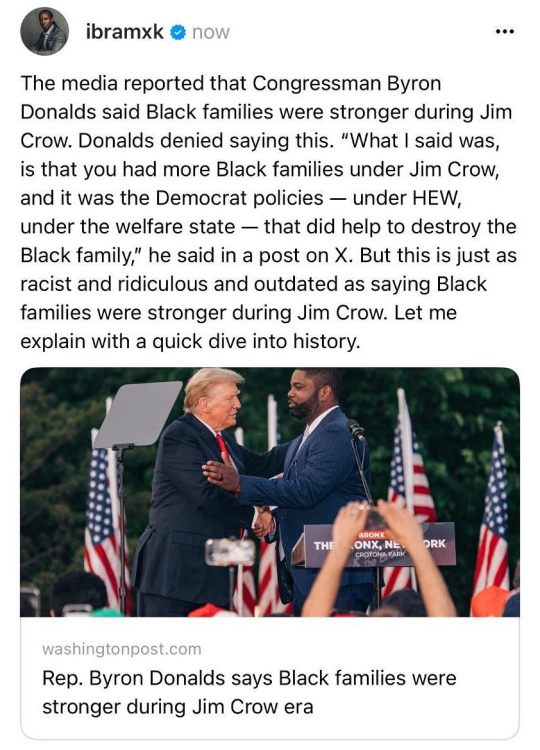
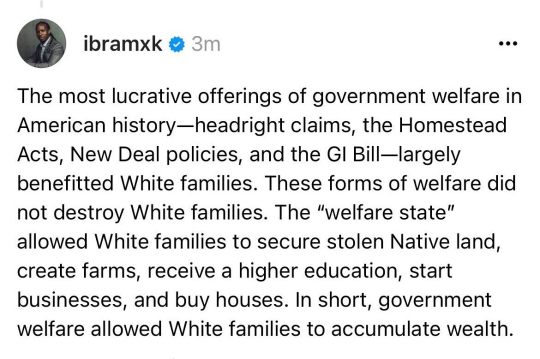
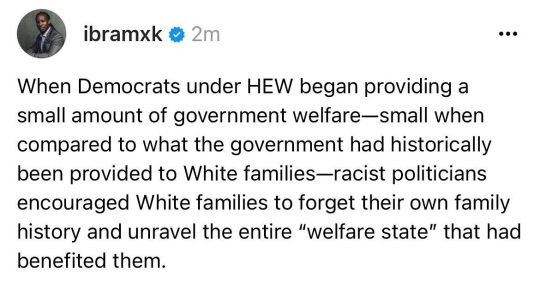
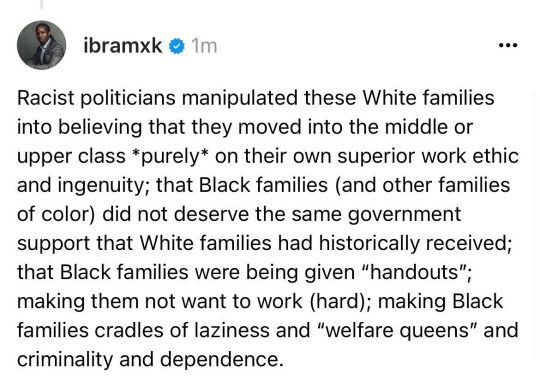
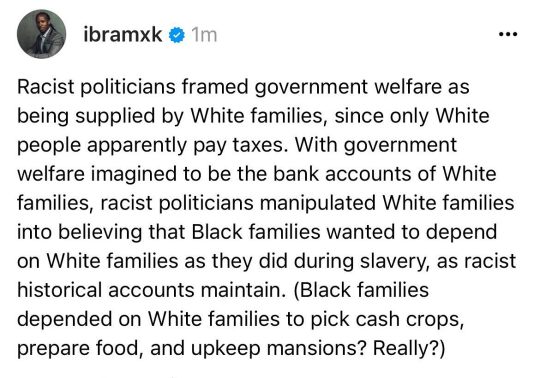
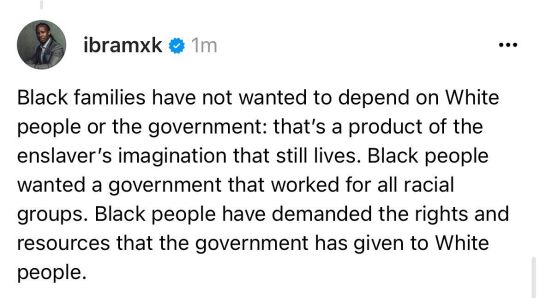



#jim crow#black family strength myth#black history#white supremacy#brian donalds#black republicans#welfare programs#government assistance#racial injustice#homestead act#new deal#gi bill#white privilege#wealth disparity#racial hatred#black family oppression#white supremacist narratives#systemic racism#black family resilience#jim crow laws#black family strength#black republican lies#government welfare#oppression of black people#historical racism#welfare myths#black history distortion#economic disparities#homestead act benefits#new deal exclusions
462 notes
·
View notes
Text

Beron Vanserra is a capitalist first, Fae second
#if i had a nickel for every fanfic that has made me enjoy beron vanserra#the man sees the economical downsides of slavery and went “nope not doing this. time to fight for humanity rights”#he doesn't care if people are queer or women or whatever#he just wants benefits#beron vanserra#acotar#autumn court#s
160 notes
·
View notes
Text
‘100% feminist’: how Eleanor Rathbone invented child benefit – and changed women’s lives for ever
She was an MP and author with a formidable reputation, fighting for the rights of women and refugees, and opposing the appeasement of Hitler. Why isn’t she better known today?
Ladies please reblog to give her the recognition she deserves

By Susanna Rustin Thu 4 Jul 2024
My used copy of the first edition of The Disinherited Family arrives in the post from a secondhand bookseller in Lancashire. A dark blue hardback inscribed with the name of its first owner, Miss M Marshall, and the year of publication, 1924, it cost just £12.99. I am not a collector of old tomes but am thrilled to have this one. It has a case to be considered among the most important feminist economics books ever written.
Its centenary has so far received little, if any, attention. Yet the arguments it sets out are the reason nearly all mothers in the UK receive child benefit from the government. Its author, Eleanor Rathbone, was one of the most influential women in politics in the first half of the 20th century. She led the National Union of Societies for Equal Citizenship (Nusec, the main suffragist organisation, also formerly known as the National Union of Women Suffrage Societies) from 1919, when Millicent Fawcett stood down, until the roughly five million women who were not enfranchised in 1918 gained the vote 10 years later. In 1929, aged 57, she became an MP, and remained in parliament until her death in 1946. While there, she built up a formidable reputation based on her advocacy for women’s rights, welfare reform and the rights of refugees, and her opposition to the appeasement of Hitler.
It would not be true to say that Eleanor Rathbone has been forgotten. Her portrait by James Gunn hangs in the National Portrait Gallery. Twenty years ago she was the subject of a fine biography and she is remembered at Somerville college, Oxford – where she studied in the 1890s and ran a society called the Associated Prigs. (While the name was a joke, Rathbone did have a priggish side – as well as being an original thinker, tremendous campaigner, and stubborn, sensitive personality.) She also features in Rachel Reeves’s book The Women Who Made Modern Economics, although Reeves – who hopes shortly to become the UK’s first female chancellor – pays more attention to her contemporary, Beatrice Webb.

A thrilling tome … The Disinherited Family by Eleanor Rathbone. Photograph: Alicia Canter/The Guardian
But Rathbone, who came from a wealthy dynasty of nonconformist merchants, does not have anything like the name-recognition of the Pankhursts or Millicent Fawcett, or of pioneering politicians including Nancy Astor and Ellen Wilkinson. Nor does she enjoy the cachet of writers such as Virginia Woolf, whose polemic about women’s opportunities, A Room of One’s Own, was published five years after Rathbone’s magnum opus.
There are many reasons for Rathbone’s relative obscurity. One is that she was the first woman elected to parliament as an independent (and one of a handful of men at the time). Thus there is no political party with an interest in turning her into an icon. Having spent the past three years writing a book about the British women’s movement, I am embarrassed to admit that when I started, I didn’t know who she was.
Rathbone was not the first person to propose state benefits paid to mothers. The endowment of motherhood or family allowances, as the policy was known, was written about by the Swedish feminist Ellen Key, and tried out as a project of the Fabian Women’s Group, who published their findings in a pamphlet in 1912. But Rathbone pushed the idea to the forefront. A first attempt to get Nusec to adopt it was knocked back in 1921, and she then spent three years conducting research. The title she gave the book she produced, The Disinherited Family, reflected her view that women and children were being deprived of their rightful share of the country’s wealth.
The problem, as she saw it, was one of distribution. While the wage system in industrialised countries treated all workers on a given pay grade the same, some households needed more money than others. While unions argued for higher wages across the board, Rathbone believed the state should supplement the incomes of larger families. She opened the book with an archly phrased rhetorical question: “Whether there is any subject in the world of equal importance that has received so little consideration as the economic status of the family?” She went on to accuse economists of behaving as if they were “self-propagating bachelors” – so little did the lives of mothers appear to interest them.
Rathbone’s twin aims were to end wives’ dependence on husbands and reward their domestic labour. Family allowances paid directly to them could either be spent on housekeeping or childcare, enabling them to go out to work. Ellen Wilkinson, the radical Labour MP for Middlesbrough (and future minister for education), was among early supporters. William Beveridge read the book when he was director of the London School of Economics, declared himself a convert and introduced one of the first schemes of family-linked payments for his staff.
But others were strongly opposed. Conservative objections to such a radical expansion of the state were predictable. But they were echoed by liberal feminists including Millicent Fawcett, who called the plan “a step in the direction of practical socialism”. Trade unions preferred to push for a living wage, while some male MPs thought the policy undermined the role of men as breadwinners. Labour and the Trades Union Congress (TUC) finally swung behind family allowances in 1942. As the war drew to a close, Rathbone led a backbench rebellion against ministers who wanted to pay the benefit to fathers instead.

Rathbone celebrates the Silver Jubilee of the Women’s Vote in London, 20 February 1943. Photograph: Picture Post/Getty Images
It is for this signature policy that she is most often remembered today. At a time when hundreds of thousands of children have been pushed into poverty by the two-child limit on benefit payments, Rathbone’s advocacy on behalf of larger families could hardly be more relevant. The limit, devised by George Osborne, applies to universal and child tax credits – and not child benefit itself. But Rishi Sunak’s government announced changes to the latter in this year’s budget. From 2026, eligibility will be assessed on a household rather than individual basis. This is intended to limit payments to better-off, dual-income families. But the UK Women’s Budget Group and others have objected on grounds that child benefit should retain its original purpose of directly remunerating primary carers (the vast majority of them mothers) for the work of rearing children. It remains to be seen whether this plan will be carried through by the next government.
Rathbone once told the House of Commons she was “100% feminist”, and few MPs have been as single-minded in their commitment to women’s causes. As president of Nusec (the law-abiding wing of the suffrage campaign), she played a vital role in finishing the job of winning votes for women.
The last few years have seen a resurgence of interest in women’s suffrage, partly due to the centenary of the first women’s suffrage act. Thanks to a brilliant campaign by Caroline Criado Perez, a statue of Millicent Fawcett, the nonmilitant suffragist leader, now stands in Westminster, a few minutes walk from the bronze memorial of Emmeline Pankhurst erected in 1930. Suffragette direct action has long been a source of fascination. What is less well known is that militants played little part in the movement after 1918. It was law-abiding constitutionalists – suffragists rather than suffragettes – who pushed through the 1920s to win votes for the younger and poorer women who did not yet have them. Rathbone helped lead this final phase of the campaign, along with Conservative MP Nancy Astor and others.
Rathbone was highly critical of the militants, and once claimed that they “came within an inch of wrecking the suffrage movement, perhaps for a generation”. Today, with climate groups including Just Stop Oil copying the suffragette tactic of vandalising paintings, it is worth remembering that many women’s suffrage campaigners opposed such methods.
Schismatic though it was, the suffrage movement at least had a shared goal. An even greater challenge for feminists in the 1920s was agreeing on future priorities. Equal pay, parental rights and an end to the sexual double standard were among demands that had broad support. After the arrival in the House of Commons of the first female MPs, legislative successes included the removal of the bar on women’s entry to the professions, new rights for mothers and widows’ pensions. But there were also fierce disagreements.
Tensions between class and sexual politics were longstanding, with some on the left regarding feminism as a distraction. The Labour MP Marion Phillips, for example, thought membership of single-sex groups placed women “in danger of getting their political opinions muddled”. There was also renewed conflict over protective legislation – the name given to employment laws that differentiated between men and women. While such measures included maternity leave and safety rules for pregnant women, many feminists believed their true purpose was to keep jobs for men – and prevent female workers from competing.
Underlying such arguments was the question of whether women, once enfranchised, should strive for equal treatment, or push for measures designed to address their specific needs. As the debate grew more heated, partisans on either side gave themselves the labels of “old” and “new” feminists. While the former, also called equalitarians, wanted to focus on the obstacles that prevented women from participating in public life on the same terms as men, the new feminists led by Rathbone sought to pioneer an innovative, woman-centred politics. Since this brought to the fore issues such as reproductive health and mothers’ poverty, it is known as “maternalist feminism”.

Rathbone and other Liverpool suffragettes campaigning in 1910. Photograph: Shawshots/Alamy
The faultline extended beyond Britain. But Rathbone and her foes had some of the angriest clashes. At one international convention, Lady Rhondda, a wealthy former suffragette, used a speech to deride rivals who chose to “putter away” at welfare work, instead of the issues she considered important.
The specific policy points at issue have, of course, changed over the past century. But arguments about how much emphasis feminists should place on biological differences between men and women carry on.
Eleanor Rathbone did not live long enough to see the welfare state, including child benefit paid to mothers, take root in postwar Britain. Her election to parliament coincided with the Depression, and the lengthening shadows of fascism and nazism meant that she, like her colleagues, became preoccupied with foreign affairs. In the general election of 1935, the number of female MPs fell from 15 to nine, meaning Rathbone’s was one of just a handful of women’s voices. She used hers to oppose the policy of appeasement, and support the rights of refugees, including those escaping Franco’s Spain. During the war she helped run an extra-parliamentary “woman-power committee”, which advocated for female workers.
She also became a supporter of Indian women’s rights, though her liberal imperialism led to tensions with Indian feminists. During the war she angered India’s most eminent writer, Rabindranath Tagore, and its future prime minister, Jawaharlal Nehru, when she attacked the Congress party’s policy of noncooperation with Britain’s war effort. Tagore criticised what he called the “sheer insolent self-complacency” of her demand that the anti-colonial struggle should be set aside while Britain fought Germany.
Rathbone turned down a damehood. After their first shared house in Westminster was bombed, she and her life partner, the Scottish social worker Elizabeth Macadam, moved around the corner to a flat on Tufton Street (Macadam destroyed their letters, meaning that Rathbone’s intimate life remains obscure, but historians believe the relationship was platonic). From there they moved to a larger, quieter house in Highgate. On 2 January 1946, Rathbone suddenly died.

Rathbone’s blue plaque at Tufton Court. Photograph: PjrPlaques/Alamy
A blue plaque on Tufton Street commemorates her as the “pioneer of family allowances” – providing an alternative claim on posterity for an address more commonly associated with the Brexit campaign, since a house a few doors down became its headquarters. She is remembered, too, in Liverpool, where her experience of dispersing welfare to desperately poor soldiers’ wives in the first world war changed the course of her life, and where one of her former homes is being restored by the university.
I don’t believe in ghosts. But walking in Westminster recently, I imagined her hastening across St James’s Park to one of her meetings at Nancy Astor’s house near the London Library. Today, suffragettes are celebrated for their innovative direct action. But Rathbone blazed a trail, too, with her dedication as a campaigner, writer, lobbyist and “100% feminist” parliamentarian.
Sexed: A History of British Feminism by Susanna Rustin is published by Polity Press (£20). To support the Guardian order your copy at guardianbookshop.com. Delivery charges may apply
#Eleanor Rathbone#The Disinherited Family#Books by women#Books about women#Child benefit#National Union of Societies for Equal Citizenship (Nusec)#Rachel Reeve#The Women Who Made Modern Economics#Women in politics#UK#Seed: A History of British Feminism#Susan Rustin
84 notes
·
View notes
Text
Tired of seeing North American election politics on my dash and the only thing I'll say about it is that it was a seriously bad move to not have compulsory voting for all citizens. Part of being an adult is making hard decisions and getting to opt out of that by legally not voting is not the gotcha that a lot of people think it is.
#i don't fully understand why third party voting isn't an option that would affect actual political change like it does in aus#and i can only assume it's because the voting system in the usa is so fucked that even though they love trickle down economics#trickle down voting aka preferential voting apparently doesn't work#so whilst in Australia i would absolutely advocate for third party voting bc it does work#if youe gov structure is so entrenched in the right that not voting benefits the right#then you have to vote for the least bad option#and that's your civil duty#we live in a society etc etc
144 notes
·
View notes
Text
+ this isnt about american politics specifically as we're seeing the same thing over here but people saying they'll vote conservative because for the last 4yrs the economy has been tough like gosh. darn. wonder why that might be. bet it couldn't have anything to do with the veritable conveyor belt of Shitty Shit Happening Internationally for the last few years no certainly it all hinges on whoever whichever nation has sitting in the big chair atm. and im sure it wouldve been tons better if that person represented the side that very clearly says they don't give a flying fuck about keeping people's heads above water.
#idk abt you but i thank my lucky fucking stars that we havent been headed by right wing economists through this energy crisis#'but their energy politics benefit commercial institutions more than consumers!' YEAH AND DO YOU THINK THE BUSINESS MCBUSINESS PARTY WOULDNT#???#DO YOU THINK THEY WOULD HAVE MADE IT EASIER FOR YOU??#DO YOU REALLY NOT THINK IT COULD HAVE GONE WORSE??#sometimes it would be real fucking nice of ppl to look at the other country over there and consider that maybe if#theyre having the exact same fucking crisis#this *wasnt* caused by (insert prime minister/president/whoever)#but maybe we should consider electing the people who say theyre gonna like. idk. try to stave off economic regression at the very least
39 notes
·
View notes
Text
attempt to idly discuss concept of custom wedding vows with 🌸 ground to a halt after the realization that neither of us actually, like, wants to try to figure out what the fuck we'd be promising
can you do custom vows, but instead of vows to do stuff, it's just a list of the superbly good qualities of the other person in order to make it clear why any rational actor would agree that you should obviously plan to keep hanging out with them as long as possible
#getting married is not really a thing id be doing in order to concretize any promise that isn't 'we really really want to keep doing this#and want to experience various economic benefits of that desire and also invite my family to celebrate about how great 🌸 is'#it's not that i don't consider us to have commitments to each other it's just like. the vows would be essentially 'i promise to try to have#continuity of personality with my current self to the extent that that bears on the qualities that make our relationship work well'#i don't know why it bothers me so much. but the idea of idk. promising to always listen to 🌸 or whatever feels genuinely horrible#it's sort of. parodic? either i'm doing it and/or have given good reason to believe i would be receptive to and capable of working toward i#or not. and either way. why are our families watching us reiterate that information.#on the other hand i would REALLY like to get up and give a speech about 🌸's innumerable deeply admirable qualities which strongly#motivate me to continue living with and knowing and supporting them.#so if i do that instead. do you think anyone will like. notice.#box opener#i guess it's good to realize that i have a STRONG IDEOLOGICAL OPPOSITION TO WEDDING VOWS before we're publicly engaged#but also. we are really rejecting a lot of the wedding concept. it's possible this is going to end up being two speeches and a dance party.#a rabbi can stand nearby. for ambiance.
23 notes
·
View notes
Text
love how dune was like paul is following in his mother’s footsteps (achieving revenge by exploiting an entire people and subjecting the rest of the universe to unimaginable violence from grief) and chani is following in her mother’s footsteps (fighting for her people and the ecological health of her planet) and you know they’re so fucking doomed from the very beginning.
#some of the accessory details are so incredibly important to the story. the atreides have fanatical support from their military which is#later transposed onto the fremen. the atreides don’t come to arrakis with the intention to transform its ecology for the benefit of#its native people. they come to continue the cycle of resource exploitation and economic benefit albeit. they tolerate fremen because they#offer a strategic benefit.#text#dune#btw never assume any post about paul is also not about alia ^^
30 notes
·
View notes
Text

Good thing he didn't say "fence sitter" or he'd get shot for trespassing on the lawn.
#democrats#republicans#homelessness#poverty#election 2024#baseball bat#economics#welfare and benefits#project 2025#trump#third parties#political cartoon
21 notes
·
View notes
Text
Judd Legum at Popular Information:
In 2024, reliable access to high-speed internet is no longer a luxury; it is a basic necessity. From job applications to managing personal finances and completing school work, internet access is an essential part of daily life. Without an internet connection, individuals are effectively cut off from basic societal activities.
But the reality is that many people — particularly those living around the poverty line — can not afford internet access. Without internet access, the difficult task of working your way from the American economy's bottom rung becomes virtually impossible.
On November 21, 2021, President Biden signed the bipartisan Infrastructure Investment and Jobs Act. The new law included the Affordable Connectivity Program (ACP), which provided up to $30 per month to individuals or families with income up to 200% of the federal poverty line to help pay for high-speed internet. (For a family of four, the poverty line is currently $31,200.) On Tribal lands, where internet access is generally more expensive, the ACP offers subsidies up to $75 per month.
The concept started during the Trump administration. The last budget enacted by Trump included $3.2 billion to help families afford internet access. The FCC made the money available as a subsidy to low-income individuals and families through a program known as the Emergency Broadband Benefit Program. The legislation signed by Biden extended and formalized the program.
It has been a smashing success.
Today, the ACP is "helping 23 million households – 1 in 6 households across America." The program has particularly benefited "rural communities, veterans, and older Americans where the lack of affordable, reliable high-speed internet contributes to significant economic, health and other disparities." According to an FCC survey, two-thirds of beneficiaries "reported they had inconsistent internet service or no internet service at all prior to ACP." These households report using their high-speed internet to "schedule or attend healthcare appointments (72%), apply for jobs or complete work (48%), do schoolwork (75% for ACP subscribers 18-24 years old)."
Tomorrow, the program will abruptly end.
In October 2023, the White House sent a supplemental budget request to Congress, which included $6 billion to extend the program through the end of 2024. There is also a bipartisan bill, the Affordable Connectivity Program Extension Act, which would extend the program with $7 billion in funding. The benefits of the program have shown to be far greater than the costs. An academic study published in February 2024 found that "for every dollar spent on the ACP, the nation’s GDP increases by $3.89."
The program will lapse tomorrow because Speaker Mike Johnson (R-LA) refuses to bring either the bill (or the supplemental funding request) to a vote. The Affordable Connectivity Program Extension Act has 225 co-sponsors which means that, if Johnson held a vote, it would pass.
[...]
The Republican attack on affordable internet
Why will Johnson not even allow a vote to extend the ACP? He is not commenting. But there are hints in the federal budget produced by the Republican Study Committee (RSC). The RSC is the "conservative caucus" of the House GOP, and counts 179 of the 217 Republicans in the House as members. Johnson served as the chair of the RSC in 2019 and 2020. He is currently a member of the group's executive committee.
The RSC's latest budget says it "stands against" the ACP and labels it a "government handout[] that disincentivize[s] prosperity." The RSC claims the program is unnecessary because "80 percent" of beneficiaries had internet access before the program went into effect. For that statistic, the RSC cites a report from a right-wing think tank, the Economic Policy Innovation Center (EPIC), which opposes the ACP. EPIC, in turn, cites an FCC survey to support its contention that 80% of ACP beneficiaries already had internet access. The survey actually found that "over two-thirds of survey respondents (68%) reported they had inconsistent internet service or no internet service at all prior to ACP."
[...]
The RSC also falsely claims that funding for the precursor to the ACP, the Emergency Broadband Benefit Program (EBB), "was signed into law at the end of President Biden’s first year in office." This is false. Former President Trump signed the funding into law in December 2020.
The RSC's position is not popular. A December 2023 poll found that 79% of voters support "continuing the ACP, including 62% of Republicans, 78% of Independents, and 96% of Democrats."
In 2024, access to the internet is a necessity and not just a luxury, and the Republicans are set to end the Affordable Connectivity Program if no action is taken. The Affordable Connectivity Program (ACP) provided subsidies to low-income people and families to obtain internet access.
#Internet#Internet Access#Affordable Connectivity Program Extension Act#Affordable Connectivity Program#Infrastructure Investment and Jobs Act#IIJA#Emergency Broadband Benefit Program#Republican Study Committee#Economic Policy Innovation Center
34 notes
·
View notes
Text


i am going to explode kier starmer with my mind
#just pure tory playbook shit#going on about benefit fraud is cruel#economically illiterate#and pointless#uk politics#absolutely disgusting
10 notes
·
View notes
Text
it's literally so easy to boycott shit ik we're all tired of this and we've been over this a million times already but i really still can't believe that people are talking about boycott fatigue
#there's so many unintended benefits too😭#like ofc placing economic pressure on these companies is the first and foremost reason to boycott but also it just helped me get over#certain bad habits. like i've been meaning to stop drinking carbonated drinks for a while now#not that i drank them a lot but i wanted to cut them out of my diet completely#and what do you know i haven't drank any since september#so many things like this....just get over yourself goddd
25 notes
·
View notes
Text
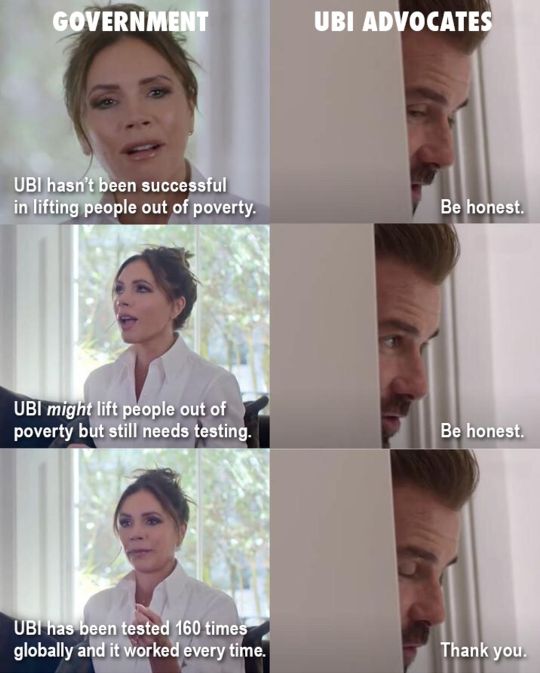

#universal basic income#UBI#social welfare#unconditional transfer payment#means test#guaranteed minimum income#poverty line#full basic income#partial basic income#pilot projects#Mongolia#Iran#child benefit#pension#Bolsa Familia#Thamarat Program#economic crisis#COVID-19 pandemic#direct payments#Alaska Permanent Fund#negative income tax#NIT
202 notes
·
View notes
Text
Quick, tangible change will see off the hard right – these are the things Labour must do now
“Fourteen years of austerity, economic incompetence and corruption under the Conservatives created the disillusionment and alienation from politics that Farage has been able to feed off. With a change of government, his focus now will be on damaging Labour.
“People will be relatively patient, but will want to see some early initial progress on a number of fronts – and significant results by at least the midterm of this government ... To guard against a rise of the hard right here, the left has to secure a wave of progressive policy delivery, and to start soon ...
“With 14 million people, including 4.3 million children, now living in poverty, an early win in the implementation of the anti-poverty strategy Labour committed to in its manifesto would be secured by the scrapping of the brutal two-child benefit cap, lifting 300,000 children out of poverty ...
“The wages of many workers have been effectively frozen since 2008 and there has been a widespread extension of insecure and often precarious work across the economy. Labour’s commitment to introduce its new deal for workers in its first 100 days could transform the lives of people at work, and address the scourge of low pay and insecure employment, but to be effective it has to be comprehensive with no further watering down ...
“People know how much pressure our public services have been put under by Conservative austerity, but will want to see change. They will support reform that puts control into the hands of the frontline professionals, but will react to reform that privatises and enables companies to profiteer, fuelling Farage’s claim of the corporate capture of the Labour party.
“Realistically, large-scale investment is needed ... We are at a defining moment not just for the new Labour government but for the politics of our country. Beware the danger but recognise the potential.”
#john mcdonnell#labour party#labour#keir starmer#starmer#farage#nigel farage#king's speech#welfare state#child benefit#low pay#public services#growth#economics#economy#labour government#uk government#uk politics#uk#politics
5 notes
·
View notes
Text
The Supreme Court on Monday rejected the appeal of a Minnesota woman who said she was wrongly denied unemployment benefits after being fired for refusing to be vaccinated for COVID-19 because of her religious beliefs.
The Minnesota Department of Employment and Economic Development determined she wasn’t eligible for benefits because her reasons for refusing the vaccine were based less on religion and more on a lack of trust that the vaccine was effective.
The case shows that the vaccine debate continues to smolder after the pandemic and after the Supreme Court in 2022 halted enforcement of a Biden administration vaccine-or-testing mandate for large employers but declined to hear a challenge to the administration’s COVID-19 vaccine mandate for health care facilities that receive federal funding.
Still pending is an appeal from military chaplains who challenged the military’s vaccination requirement. Although that requirement was later rescinded at the direction of Congress, the chaplains argue they lost out on training opportunities and promotions because they requested religious exemptions.
Minnesota said the unemployment benefit appeal denied Monday wasn’t worth the Supreme Court’s time because benefits have been given to others who were found to have a sincerely held religious objection to the vaccine, so there’s no overarching question to address.
Lawyers for the Upper Midwest Law Center, which represented Tina Goede, had argued she was treated differently by the Minnesota courts than others who successfully appealed their denial of benefits.
REFUSING TO GET VACCINATED, FIRED FROM A PHARMACEUTICAL COMPANY
After refusing to get vaccinated, Goede was fired in 2022 from her job as an account sales manager for the pharmaceutical company Astra Zeneca. Her position had required her to meet with customers in hospitals and clinics, some of which required proof of vaccination.
She told the Minnesota Department of Employment and Economic Development her religious beliefs prohibit injecting foreign substances into her body, which is a “temple of the Holy Spirit.”
A Catholic opposed to abortion, Goede also objected to the COVID-19 vaccine because she believed it was manufactured using or tested on an aborted fetal-cell line. (A cell line from an abortion decades ago was used to create Johnson & Johnson’s coronavirus vaccine. Fetal cells were used in the early testing, though not in the production, of the Pfizer and Moderna vaccines.)
But Goede told the unemployment law judge she wouldn’t receive the vaccine no matter how it was made “because it doesn’t work.”
The judge said Goede was declining to take some vaccines, but not others, “because she does not trust them, not because of a religious belief.”
Goede’s attorneys said the judge had interrogated her religious beliefs with “unfair `gotcha’ questioning."
“He couched his denial of benefits in Ms. Goede’s credibility and then discounted her religious beliefs by determining that her secular beliefs outweighed them,” the lawyers told the Supreme Court.
At the same time the Minnesota Court of Appeals upheld that decision last year, it reached the opposite conclusion for two others who had been denied benefits after asserting religious objections.
Goede’s lawyers said her case presented a question that will reoccur: how to analyze a religious objection to an employer policy when those objections coincide with secular beliefs.
#us politics#news#usa today#2024#us supreme court#unemployment benefits#COVID-19 vaccine#covid vaccine#coronavirus vaccine#Minnesota Department of Employment and Economic Development#Minnesota#vaccine mandates#Tina Goede#unemployment
9 notes
·
View notes